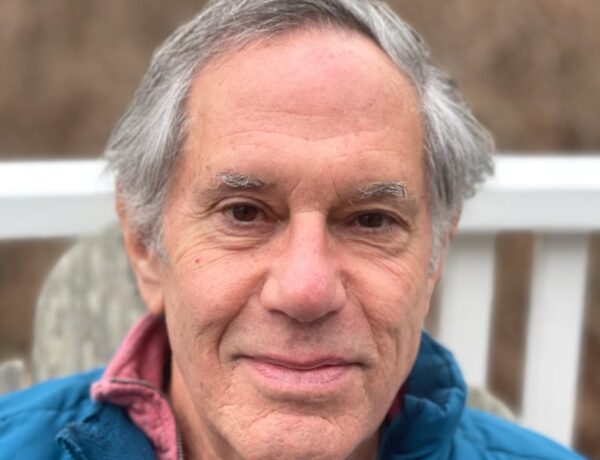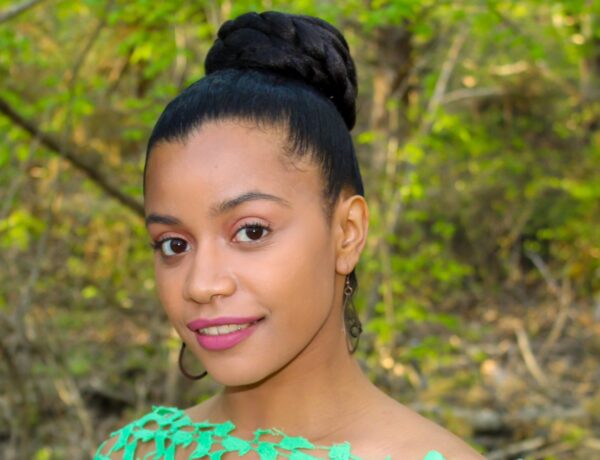Alexandra Joel is a former editor of the Australian edition of Harper’s Bazaar and of Portfolio, Australia’s first magazine for working women. She has also contributed to many national and metropolitan publications.
Her bestselling novels, The Paris Model; The Royal Correspondent; and The Artist’s Secret have been published around the world, including in Australia and New Zealand, the United States, Canada, Germany, Hungary, Romania and Bulgaria. Alexandra’s biography, Rosetta: A Scandalous True Story was optioned for the screen by a major US-owned production company. She is also the author of two widely acclaimed books on the history of fashion in Australia.
Hi Alexandra, thank you for taking the time to chat with us! Your media career began when you were still a student, performing voice-overs for TV and radio commercials. What was that experience like, and how did it shape your future career path in writing?
No one has ever asked me that before! But it’s an interesting question. The first thing I learnt was to assume character. For instance, how exactly should the Avis Girl sound? Every time I said ‘We try harder’ – at the time a famous catchline, I tried to sound inviting, approachable and real – with just a touch of authority. Looking back, it was excellent training for finding the right ’voice’ for each of the characters in my books.
The next important lesson I learnt was complete commitment. One day all I had to do was keep time with a jungle and clap for the sound track. The producer stopped me midway, saying ‘I need to feel your enthusiasm. Clap like you’re really into it!’ That was how I learnt the difference between merely delivering a sound and imbuing it with feeling and passion. I try to apply this principle to every word I write.
Your memoir, Rosetta: A Scandalous True Story, has been optioned for the screen by a major studio. Congratulations! Can you tell us a little about the book and what it was like to have it adapted for film?
Rosetta was my great grandmother, and as outrageous as she was shameless! Rosetta caused an uproar when she was a very young woman living respectably in Edwardian Melbourne with her husband and five-year-old child by running away with a half-Chinese fortune teller called Zeno the Magnificent. The pair completely reinvented themselves, traveled to London and became the toast of British and European society.
I have many letters famous people wrote to them, including fourteen from Queen Victoria’s favorite granddaughter, Princess Charlotte (she was also the sister of the last Kaiser of Germany), and even a telegram from Baroness Stern inviting Rosetta and ‘Professor’ Zeno to tea because the Empress Eugenie was dying to meet them. But, despite living a life filled with glamor and intrigue, Rosetta never saw her child again. That child was my grandmother.
I was incredibly excited when Rosetta was optioned – for a mini-series though, rather than a film. I told the scriptwriter I understood that the screen was a different medium, and that some elements of Rosetta’s story would need to be reworked for dramatic purposes, although actually reading an episode was an eerie feeling. The option lapsed during the great COVID-19 shutdown, but happily there is still considerable interest in bringing Rosetta to the screen. Stay tuned.
Your latest novel, The Artist’s Secret, centers around the art world and a missing girl. What drew you to this topic, and what kind of research did you do to write about it authentically?
A I adore art and have studied it for many years, so I couldn’t wait to write about a subject that I find so inspiring. If you follow your passion, then your writing can sing. I was also intrigued by family secrets. Rosetta was a huge one in my life – it wasn’t until I was in my thirties that I even learnt her name, let alone anything about her scandalous life. Yet intergenerational trauma is very real – it is the missing pieces of one’s that can often make the most profound impact.
My research included conducting numerous in-person interviews with a variety of fascinating artworld luminaries, particularly in the realm of auctions. I always try to conduct interviews in person, as I find people are always a little more formal – and far less likely to disclose secrets – if you rely on a telephone call or, even worse, opt for Zoom.
I also became a telephone bid taker for a major sale, just so I would know what it was like to walk in my character’s shoes. It was terrifying, but also completely exhilarating. In addition, I attended auctions and read books on the psychology that underpins the process. For example, art auctions move ultra quickly. As one auctioneer told me, ‘You want to give a bid just long enough to put a hand up, but not long enough to think about it’!
The novel is set across different locations and time periods. How did you balance the multiple storylines and settings, and what were some of the challenges you faced?
The interweaving of locations, time periods and locations is a highly technical process, although the trick is of course to make it seem utterly seamless. I would like to say I have every strand plotted out – but I don’t. The story evolves organically. I often feel as if I’m a conductor with a symphony playing in my head. As I write I sense when to heighten tension, what needs to become harsher or softer, when to proceed delicately and when to rush forward. It is part of the creative process and I honestly can’t explain how it happens.
Wren Summers is a strong, independent protagonist. Can you tell us a bit about how you developed her character, and what you hope readers will take away from her story?
I was drawn to write about a character who feels she doesn’t belong as, in my experience, that disturbing sense – even if it’s a fleeting experience – is universal. The world of museums and high-stakes international art auctions I described is, hopefully, enthralling, but at its core The Artist’s Secret is about elemental needs.
To know the identity and the whereabouts of one’s parents, sisters and brothers seems little enough to expect from life. Yet this simple information often remains out of the reach of refugees, members of the stolen generation, adoptees, those affected by war and other calamities or those who, like Wren, have been impacted by traumatic personal circumstances.
Wren’s determination, her intellect, passion and above all her spirit enabled her to forge a new sense of belonging and with it, a more profound identity. I hope that for readers, just like great art, her example will nurture the soul and fill the heart with hope.
The novel has been described as a mix of mystery, romance and historical fiction. How do you approach blending these different genres in your writing?
I have always resisted being overly bound by genre. I use all the tools at my disposal to create a world that is utterly believable. Having spent many years listening to other people’s stories, both as a journalist and as a therapist. I know that life rarely falls neatly into little boxes. Accordingly, my aim is always to express a wide range of human experience in a way that is both vivid and, ultimately, captivating.
Can you tell us about your writing routine? What does a typical day look like for you?
When I’m in the thick of things I work obsessively, seven days a week. I don’t begin until 9.30 or 10.00am, then keep going until around 5.00pm, fuelled mostly by cups of tea and chocolate biscuits. I take a break for dinner and might then watch something intriguing on a streaming service, but inevitably find myself drifting back to my computer. For me, writing is like reading a book. I’m always dying to know what happens next, and how a whole host of mysteries and dilemmas will be solved. The problem is, I have to write the book in order to know the outcome! Let’s just say, I’m on the edge of my seat just as much as the reader.
If you could have a conversation with any author through history about their writing routine and creative process, who would that person be?
The late Hilary Mantel, author of the magisterial Wolf Hall trilogy that centers on the life of Thomas Cromwell. I am in awe of her use of research, the way in which she brings history to life, her unique use of language and deep psychological insights.
I’d love to know about the books you’re reading at the moment. What have been some of your favorite recent reads?
I just finished reading Ian McEwan’s Lessons. To follow a character from boyhood to old age, experiencing his traumas and small triumphs, was a pleasure. I really admire the way that McEwan can ‘get under the skin’ of his characters. Prior to that I read a book written decades ago, The House in Paris, by Elizabeth Bowen. She is a spare, economical writer who is able to express intense emotions in a few elegant phrases.
What does your current workspace look like?
Messy! I work surrounded by files, books, notes and newspaper cuttings at an L-shaped desk. One side has a view into my leafy courtyard, the other side buts up against a pinboard attached to a wall with, again, a collage of book covers, inspirational photographs, images of paintings and random Notes To Self. I guess the most unusual feature is my computer screen. They’re always landscape shaped, whereas mine is flipped so I gaze at a long rectangle. I love this weird looking arrangement – it forces me to sit up straight, and means I can look at rows and rows of words spilling before me.



No Comments